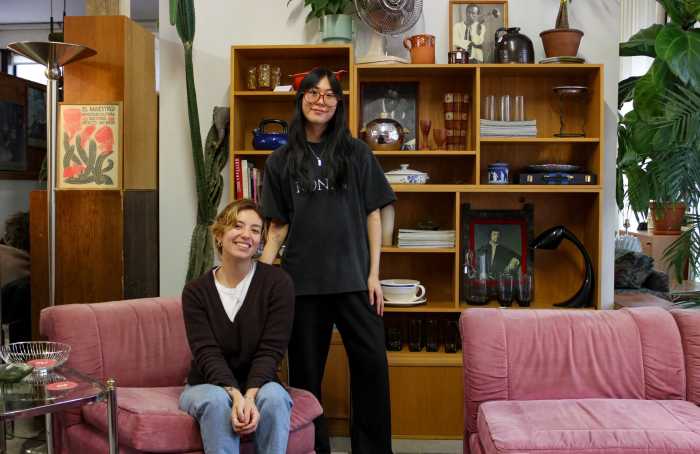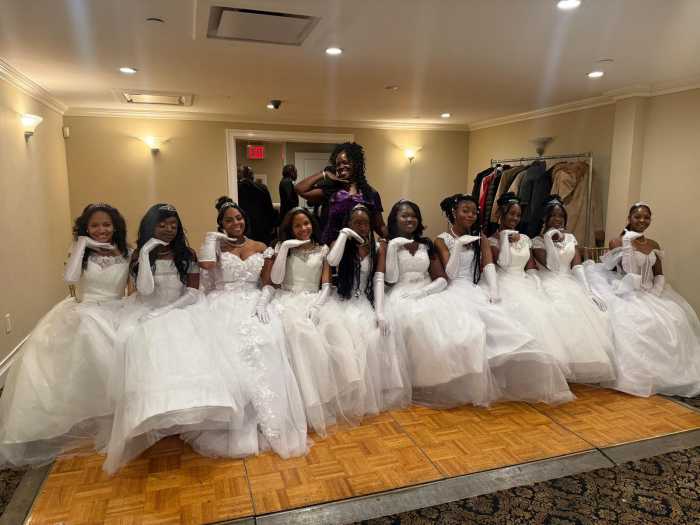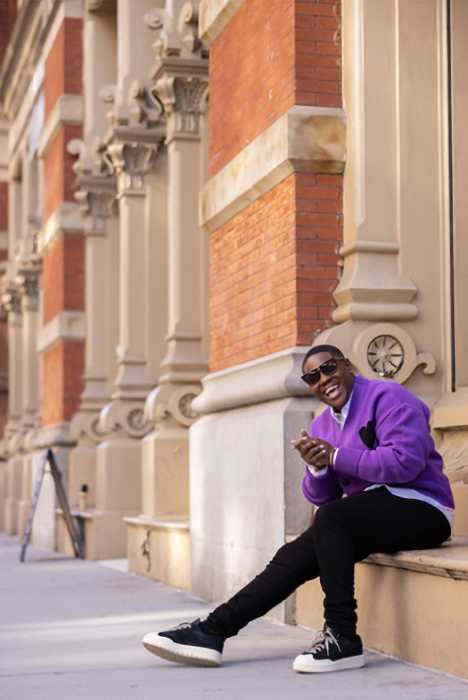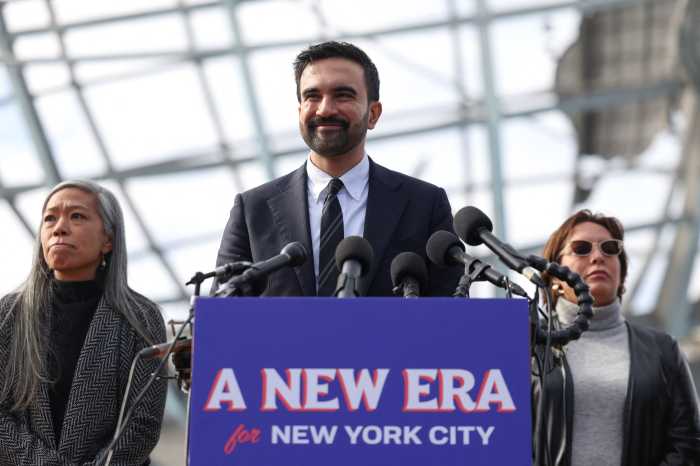It is difficult to pinpoint the exact moment that the transformation took place, but as the gay, lesbian, bisexual and transgender community in New York City celebrates this weekend, it is unmistakably clear that pride has become inextricably linked to the demand for full equality in American life.
In the 36 years since Stonewall, a variety of issues have been at the forefront of the gay civil rights agenda—an end to harassment of homosexuals in public places, employment nondiscrimination guarantees, the repeal of sodomy and other punitive sex laws, equal treatment of women, adequate health care coverage during the early years of AIDS, protection from hate crimes and access to open military service among them.
Since civil marriage rights moved up on the agenda with the unexpected success of efforts begun in Hawaii in the mid-1990s, members of the LGBT community slowly came to recognize that this battle would grow in importance over time.
Yet even two years ago on Pride Sunday, it could scarcely have been predicted that the struggle over marriage rights would move so far, so fast; that it would come to represent so vividly in the public mind the aspirations of the gay and lesbian community; that we would acknowledge as much, or nearly so, ourselves; or that our full equality—or our complete liberation, to borrow from the language of the Stonewall era—would come to be wrapped up quite so much with the dogged pursuit, in state court after state court and in referendum after referendum, of the rights our parents took for granted as married heterosexuals.
Remember, it was only on June 26, 2003 that the U.S. Supreme Court, in its historic Lawrence v. Texas ruling, struck down the last of the nation’s sodomy laws, saying that they offended the liberty interests of gay men and lesbians guaranteed by the Constitution’s due process clause. The language, not only in Justice Anthony Kennedy’s majority opinion but also in a concurrence written by Sandra Day O’Connor, was so sweeping and unprecedented in its acknowledgment of the dignity of gay people that, for those few who took the time to read the two texts, tears likely came to their eyes.
Still, when Justice Antonin Scalia, in his churlish dissent, warned that the ruling opened the door to same-sex marriage, it was hard not to think he was merely trying to whip up the American right wing to press for more conservative judges, ones he would enjoy serving with.
Just days before the Lawrence decision, a ruling from the highest court in Ontario made same-sex marriage a reality for the first time in North America. But, despite the furor set off among gays and lesbians as early as 1996 by the Defense of Marriage Act, signed into law by Pres. Bill Clinton, the drive for civil marriage rights here in the U.S. remained a vague, nearly abstract goal for most of us that June day just two years ago.
Massachusetts, only a few months later, changed all that, but not only, or even primarily, because it empowered us to believe that the long-term goal was achievable in a much shorter time frame, but perhaps more importantly in the way it engaged our enemies.
Since Anita Bryant’s Dade County campaign of 1977, at least, the gay rights movement had been a high profile punching bag for the Christian right. But nothing ever crystallized the effort of the right to drum up opposition to the gay community in the way that same-sex marriage in Massachusetts—and the fear that the infection might spread elsewhere—has. Nearly all of the significant movement for constitutional amendments permanently blocking same-sex marriage rights, in Washington, in the White House and in the states, has taken place since the Goodridge ruling by the Massachusetts Supreme Judicial Court in November 2003.
If same-sex marriage was not yet clearly at the center of the gay agenda on June 26, 2003, the day the nation finally ended its tradition of criminalizing the intimate behavior of gay men and lesbians, it indisputably was on November 2, 2004, the day 11 states voted overwhelmingly to alter their constitutions to limit the rights of one class of their citizens and the nation re-elected a president who had made cynical use of the issue in the 18 months leading up to his victory.
Where gays were once a part of a grab bag of cultural evils that included abortion, women’s changing role in society, teenage sex, divorce, curbs on prayer in public schools, welfare dependency, drugs and a host of others, with Massachusetts, gay marriage became the nexus for the severe social anxieties gripping conservative communities across America. If all of these evils threatened the primacy of traditional family life as the cornerstone of American culture, no challenge more starkly imperiled the picture of how life used to be than acceptance of married gay and lesbian couples.
And so the battle has been joined—dramatically—and our individual differences as LGBT people over what priority we place on winning marriage rights has in good measure been subsumed in common defense against an enemy that at times seems overwhelming.
The right waged the marriage battle so effectively last year that, despite the Senate’s clear repudiation of a federal constitutional marriage amendment last summer, the most common reaction to the November election was that the Democrats had lost the moral values debate. That diagnosis has made the often-timid Democrats even more reticent, not only about gay rights, but on other hot-button, values-driven issues as well.
And, in turn, the right wing feels and acts even more emboldened then before. They’ve even begun to over-reach in serious ways, perhaps nowhere more than in the tragic Terri Schiavo matter. There, the Christian right and the Republican leaders who cravenly do their bidding showed that they would not rest content to interfere solely in the family lives of gay and lesbian Americans. Despite having won a statute defending marriage, they will second guess even a husband who makes a medical decision he says his wife would have wanted for herself if that choice is not morally acceptable to them. With the recently-completed autopsy debunking the last straws that opponents of Michael Schiavo grasped at in his wife’s final days, Florida Gov. Jeb Bush could not bring himself to refrain from demagoguing the issue one last time, announcing last week an inquiry into whether the widower waited too long to call an ambulance 15 yeas ago.
In another example of right-wing zealotry, Michigan is currently bracing for implementation of a new abortion law, passed last year over Democratic Gov. Jennifer Granholm’s veto, ostensibly to curb the late-term technique opponents call “partial birth abortion,” but that could effectively chill access to choice overall in that state, because of its ambiguous language and the provision of criminal penalties for medical professionals who run afoul of its provisions. Two previous efforts at radical curbs on abortion in Michigan were struck down by federal courts, in part because exemptions were not provided to protect the health of the woman. The new measure similarly ignores that issue.
These disparate developments nationwide make clear a second great lesson of this 2005 Pride season. Not only has full equality, symbolized in good measure by marriage rights, become the inevitable partner to our pride, but in our political strategy we must make urgent common cause with all those who struggle for personal freedom and individual autonomy. For years, there has been a strong, but not uniform bond between the choice movement and the gay civil rights effort.
With the recent and escalating assaults by the right wing on a host of individual liberty issues—from common sense and compassionate choice in dying to women’s access to reproductive health services—it has become clear that our nation’s culture war is at a fulcrum between an America that honors personal autonomy and a nation that sets up moral authorities to dictate on such questions.
In our demand for full equality, every proud gay and lesbian American must be willing to work in a coalition for liberty.
gaycitynews.com













